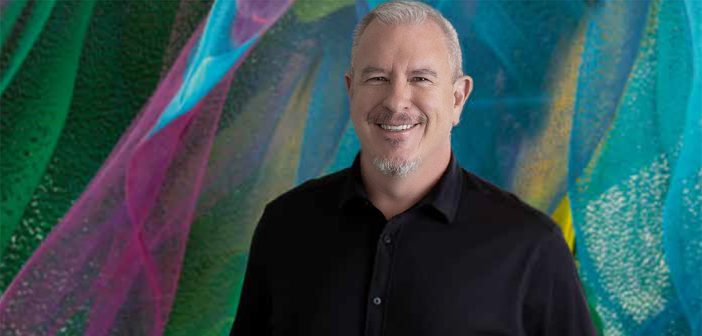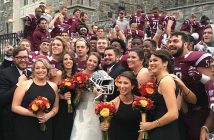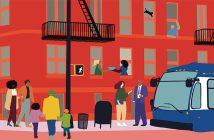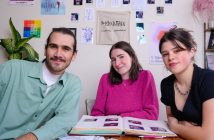It didn’t take him long to get involved with the Foundry. He had shown an entrepreneurial bent in his own career, bootstrapping his way into new types of roles on his way to becoming executive vice president and chief financial officer at Adobe. Since retiring from the company in 2021, he has been helping various businesses and nonprofits grow by serving on their boards.
And now he’s helping Fordham students and alumni develop their business ideas as an advisory board member for the Foundry. Between its advisory board, alumni council, partner organizations, and student entrepreneurs, the Foundry offers a wide and diverse community that, Murphy said, is “critically important” for budding entrepreneurs.
“They can access mentors, collaborators, investors, customers, partners, and many others that will aid their journey in creating a viable business,” he said. “I just want to see [the Foundry]continue to grow and offer more opportunities for students.”
To that end, he has been a major donor to the Foundry’s 10th anniversary fundraising campaign, an effort to raise $1.5 million in support of expanded programming and resources for student and alumni entrepreneurs.
Murphy is an advocate for teaching the entrepreneurial mindset broadly, not just to those founding businesses. Entrepreneurial qualities, he said, include resilience, confidence, drive, and the ability to learn from failure—all of which play into students’ wellness and success, a pillar of the University’s $350 million fundraising campaign, Cura Personalis | For Every Fordham Student, for which Murphy is a cabinet member.
How would you describe the entrepreneurial mindset?
Entrepreneurship education has evolved greatly over the past 15 to 20 years, incorporating a lot of soft skills, communication skills, and ways to be resilient. Resiliency is not only about “keep trying, keep trying”—no, you need to ask, why didn’t you succeed? What was it you missed? It really is about combining life experiences, work experiences, and trials and failures with everything you learn academically, and being able to look around corners to identify opportunities that aren’t obvious.
What does entrepreneurial thinking look like at the executive level?
Continuous learning. I’ve worked for a number of CEOs, and the best ones didn’t sit back and say, “I became CEO, so now I know everything.” The last CEO I worked for, Shantanu Narayen, of Adobe, regularly met with a network of fellow CEOs to talk about the challenges they were having, and it really framed how he operated the business strategically. Someone once told me, “Build a network of mentors and advisors around you that augment your skill gaps. Let them be your personal board of directors, essentially.” You’ll get candid feedback and ideas for new actions to take.
How does your own career show that approach?
Earlier in my career I got into mergers and acquisitions, which wasn’t typical of someone like me, who started out a certified public accountant. But I was interested in what makes one business a good fit with another, so I volunteered to participate in some projects. I just realized there’s no harm in trying. I was able to surround myself with people that filled in my own skill gaps so I could learn from them. And that skill set became critical when I was at Adobe—we ended up acquiring several businesses that were key to the company’s growth. In fact, Photoshop was originally an acquisition, which is kind of funny, because now, almost 30 years later, it has become iconic to the Adobe brand.
What do you enjoy most about being involved with the Foundry?
I love spending time with the alumni and the students, helping them think about potential obstacles and how to overcome them. It’s been really fun—while I didn’t start my own business, I get excited about someone else wanting to, and I can impart things that I’ve learned. Also, the Foundry has this social entrepreneurship mindset, emphasizing the idea that it’s not just about your success, it’s about what your business can do for the community around you. I think that’s a key component of the Foundry’s mission that really blends well with the University’s overall Cura Personalis campaign. And I love that.
Learn more about the Fordham Foundry and give in support of its campaign.



